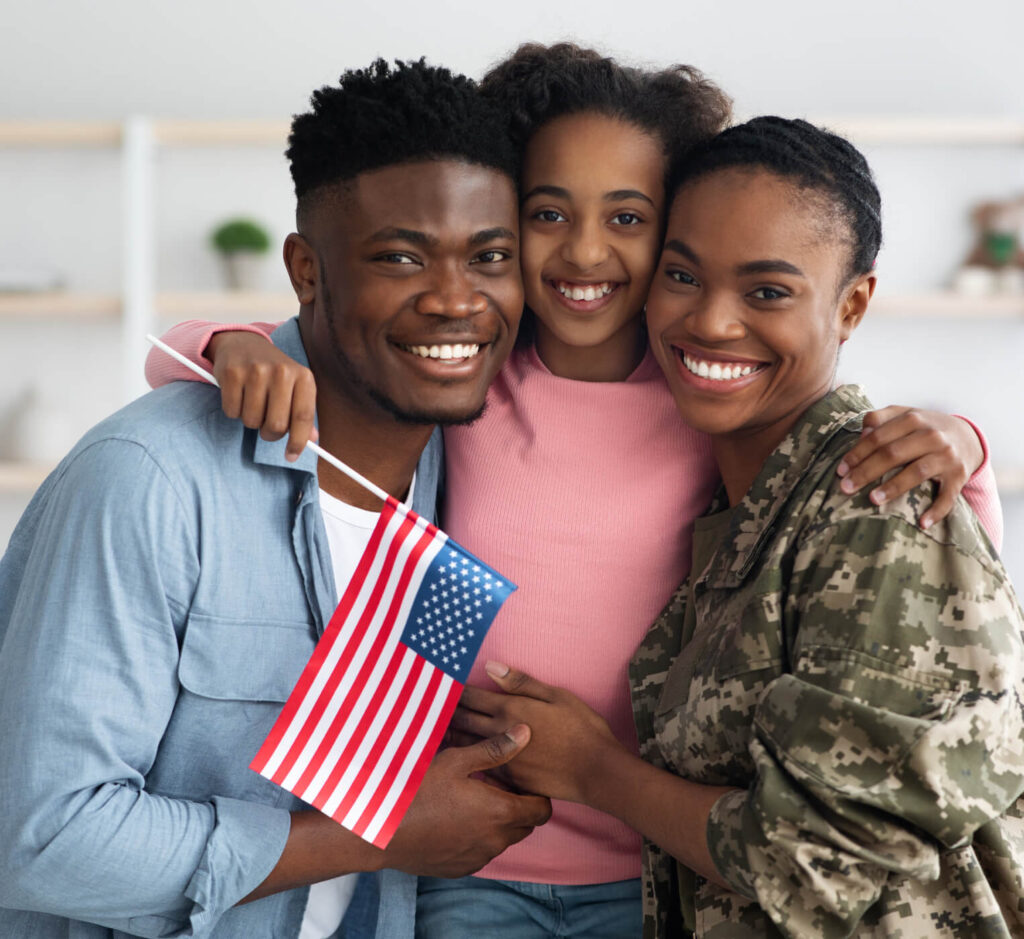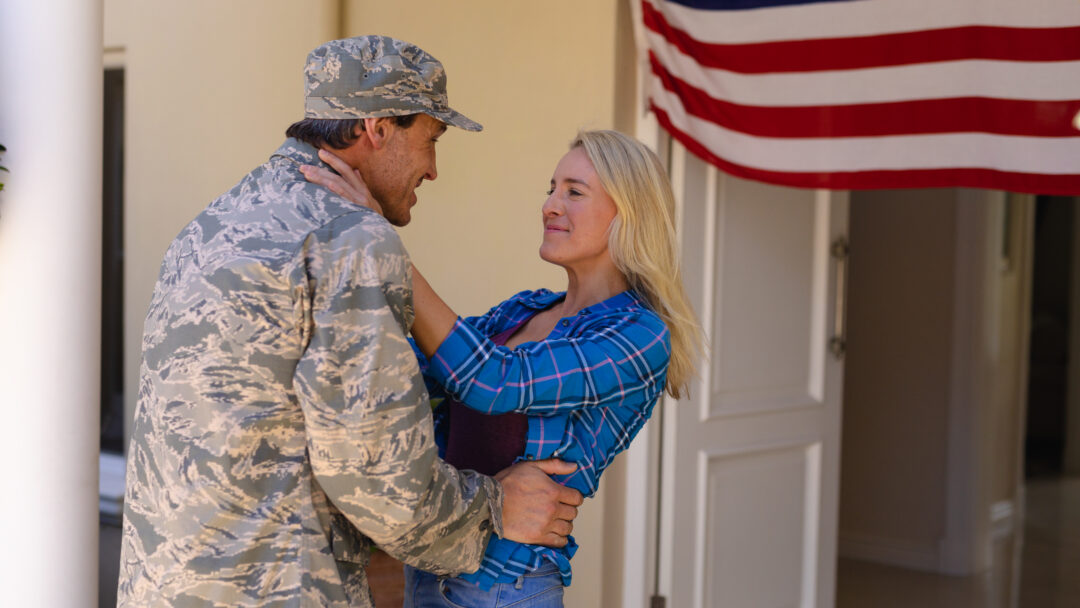Resource Guide
- Veterans face unique challenges in areas like banking, credit, employment, and housing after leaving military service.
- Military-friendly banks and credit unions offer benefits like fee waivers, early direct deposit, and personalized support.
- Education and career programs such as TAP, SkillBridge, and the GI Bill help veterans transition into civilian employment and learning opportunities.
- Housing support is available through VA home loans, grant programs, and nonprofit organizations for those facing hardship or disability.
- Knowing your rights and accessing vetted resources can help protect against scams and ensure financial stability after service.
Transitioning from military to civilian life brings a mix of opportunities and obstacles—especially when it comes to managing finances, finding stable housing, and building a career. Veterans often face challenges that civilians may not fully understand, including disrupted credit histories, gaps in employment, and difficulty navigating benefit programs.
This guide brings together trusted resources to help veterans overcome those hurdles and thrive in civilian life. From opening a bank account to securing housing or launching a new career, the information here is designed to help you make confident, informed decisions as you move forward.
Free Consultation with a Certified Debt Specialist
Start with a Free No-Obligation Consultation
Transitioning from military to civilian life brings a mix of opportunities and obstacles—especially when it comes to managing finances, finding stable housing, and building a career. Veterans often face challenges that civilians may not fully understand, including disrupted credit histories, gaps in employment, and difficulty navigating benefit programs.
This guide brings together trusted resources to help veterans overcome those hurdles and thrive in civilian life. From opening a bank account to securing housing or launching a new career, the information here is designed to help you make confident, informed decisions as you move forward.

Start Paying off Your Credit Card Debt Today!
Banking and Credit
Common Banking and Credit Challenges for Veterans
Transitioning from military to civilian life can complicate everyday financial tasks like banking and building credit. Some common issues veterans encounter include:
- Frequent relocations during military service: Moving multiple times while serving can disrupt long-term banking relationships and make it harder to build a consistent credit history after separation.
- Gaps in banking access or account history: Veterans who spent extended periods overseas or in remote locations during service may have limited financial records, which can affect credit applications or banking activity later in civilian life.
- Targeting by predatory lenders: Veterans are often targeted by high-interest payday lenders, aggressive financing offers, and credit repair scams that promise quick fixes but can lead to long-term financial harm.
Choosing the Right Bank or Credit Union
For veterans, it’s especially important to find a bank or credit union that understands your unique financial needs and offers supportive programs tailored to your situation.
What to Look for in a Veteran-Friendly Bank
When comparing banks or credit unions, keep an eye out for these key features:
- Low or no monthly fees: Many veteran-focused institutions waive monthly maintenance fees, offer free checking, or provide fee forgiveness programs.
- Specialized military benefits: Some banks offer benefits like early direct deposit of VA benefits, reduced loan rates, and financial counseling services.
- Good customer service: Banks with knowledgeable support teams can better assist with issues related to military benefits, transitions to civilian life, or moving between locations.
- Strong online and mobile banking tools: Reliable digital access is important, particularly if you move frequently or prefer handling your finances remotely.
- ATM access and fee reimbursement: Widespread ATM networks and reimbursement for out-of-network ATM fees can save you money when you’re on the move.
Notable Banks and Credit Unions for Veterans
Several banks and credit unions offer strong support and services tailored to veterans and their families.
Navy Federal Credit Union (NFCU)
Open to all branches of the military, veterans, and their families, Navy Federal offers no-fee checking and savings accounts, competitive loan rates, and specialized products like Military Choice Mortgages. Veterans can also access helpful financial tools, personalized support, and a large ATM network across the U.S. and overseas. The credit union provides educational resources and participates in financial counseling programs through the Veterans Benefits Banking Program (VBBP).
PenFed Credit Union
PenFed serves a broad military community, including veterans, and offers low-interest personal loans, credit cards, and high-yield savings options. Veterans can benefit from home financing options, including VA loans tailored for those purchasing or refinancing after service. PenFed’s mobile banking platform and robust customer service make it a practical choice for those adjusting to civilian financial routines.
USAA Bank
USAA provides banking and insurance products exclusively to veterans, active-duty servicemembers, and their families. For veterans, USAA offers fee-free checking and savings accounts, early access to direct deposit of VA benefits, competitive loan rates, and strong online and mobile banking tools. USAA also emphasizes financial literacy and provides educational content and calculators designed to help veterans manage their money confidently.
Chase Military Banking
Chase offers checking and savings accounts with no monthly service fees for veterans and military members. Features include early direct deposit access and nationwide ATM and branch access. Chase also participates in the VBBP and offers financial literacy tools and resources for veterans looking to build or manage credit, save for major purchases, or plan for retirement.
Bank of America Military Banking
Bank of America provides fee waivers, interest rate discounts, and other financial benefits for eligible veterans. Their Military Banking team is trained to assist with account management and provide guidance during major life transitions, such as post-service relocation or adjusting to a civilian budget. Veterans can also access tools for budgeting and saving, along with support from the VBBP.
Opening a Checking Account
Veterans have access to many checking account options, including ones that offer special benefits or fewer fees, but it’s important to know what to expect when opening a new account.
What You Need to Open a Checking Account
Opening a checking account typically requires a few basic documents and steps:
- Proof of identity: A government-issued ID, such as a driver’s license, passport, or military ID
- Proof of address: A utility bill, lease agreement, or other document showing your current residence
- Initial deposit: Some banks require a minimum deposit to open an account, though many military-friendly banks waive this requirement or set it very low
Veteran-friendly banks and credit unions may also ask for documentation verifying your military service (such as a DD-214 form) if you’re applying for accounts with military-specific benefits.
Many banks now offer the option to open checking accounts entirely online, which can be helpful for veterans who may be relocating or living overseas.
Best Checking Accounts for Veterans
Several banks and credit unions offer excellent checking account options designed with veterans’ needs in mind.
| Bank / Credit Union | Account Name | Key Features |
| Navy Federal Credit Union | Free Active Duty Checking® | No monthly fee, free personalized checks, up to $20/month in ATM fee rebates, early direct deposit of VA or military pay |
| USAA | Classic Checking | No monthly fee with $500 daily balance or direct deposit, early access to VA or military pay, access to 60,000+ ATMs, strong digital banking tools |
| Chase | Premier Plus Checking℠ | No monthly fee for veterans, access to thousands of branches and ATMs, early direct deposit, dedicated military customer support |
| PenFed Credit Union | Access America Checking | No monthly fee with $500 balance or direct deposit, earns interest on higher balances, full suite of veteran-focused banking services |
| U.S. Bank | Smartly® Checking | No monthly fee for veterans (with self-identification), overdraft forgiveness up to $50, ATM fee reimbursements, access to financial tools |
| Service Credit Union | Everyday Checking | No monthly fee, up to $30/month in ATM fee reimbursements, access to 30,000+ CO-OP ATMs, optional high-yield savings |
| Armed Forces Bank | Access Freedom Checking | No monthly fee, no minimum balance, early direct deposit, free money orders, access to 38,000+ surcharge-free ATMs |
Applying for the Right Credit Card
Choosing the right credit card can help you build credit, manage expenses, and even earn rewards. When evaluating credit card options, it’s wise to keep these factors in mind:
- Annual fees: Some cards waive annual fees for military members and veterans.
- Interest rates: It’s helpful to compare cards with competitive interest rates, especially if you anticipate carrying a balance.
- Rewards programs: Depending on your spending habits, cards that offer cash back, travel points, or other rewards can add extra value.
- Foreign transaction fees: If you travel or live overseas, you may want to choose a card that doesn’t charge extra fees for international purchases.
- Customer service and hardship support: Strong customer service is important, particularly when navigating financial transitions after military service.
Credit-Building Resources
Building or rebuilding credit after military service can sometimes be challenging. Fortunately, there are resources specifically designed to help veterans strengthen their credit profiles and access the financial tools they need.
Secured Credit Cards
A secured credit card can be one option for individuals looking to establish or rebuild credit. These cards typically require a refundable security deposit. Some organizations offer secured credit cards with terms designed to support veterans.
Navy Federal Credit Union (NFCU) nRewards® Secured Credit Card
This card offers 1 point per dollar spent and may become eligible for an upgrade to an unsecured card after six months of responsible use. It also has no annual fee.
PenFed Gold Visa® Secured Credit Card
This card provides a straightforward secured credit option with competitive terms for eligible members. Payments are reported to the major credit bureaus, which can help build a positive credit history.
USAA® Secured Visa® Platinum Card
Designed for individuals looking to rebuild or establish credit, this card has no annual fee and reports account activity to all three major credit bureaus.
Financial Counseling and Credit Education Resources
Several nonprofit organizations provide veterans with access to financial education, coaching, and credit counseling services. These programs are designed to help veterans better understand their financial options and navigate credit and debt challenges.
VeteransPlus
VeteransPlus is a nonprofit organization that offers free financial education and personalized coaching services tailored specifically to veterans, active-duty servicemembers, and their families. Programs focus on budgeting, debt management, and understanding credit. Services are provided by professionals with military experience to ensure culturally competent support.
Operation Homefront
Operation Homefront provides financial education and credit workshops as part of its Transitional Homes for Veterans program. While these services are only available to veterans enrolled in the housing program, they focus on promoting long-term financial stability through mandatory financial education and case management.
National Foundation for Credit Counseling (NFCC)
The NFCC connects veterans and military families with certified credit counselors who provide formal credit counseling services, often at no cost. NFCC member agencies can assist with credit report reviews, debt management planning, and other personalized financial services.
Financial Protections and Rights
After transitioning out of active duty, veterans retain certain important financial protections, but not all military-related laws continue to apply.
VA Benefits Garnishment Rules
Veterans who receive VA benefits, such as disability compensation, are protected by federal laws that limit how those funds can be seized by creditors. VA disability benefits are generally protected from garnishment, seizure, or attachment by most creditors.
However, A portion of VA benefits may be garnished to satisfy obligations such as child support, alimony, or certain federal debts (like overdue taxes or federally backed student loans).
When SCRA Protections Still Apply
Although the Servicemembers Civil Relief Act (SCRA) is primarily designed for active-duty servicemembers, some veterans may still benefit from its protections if:
- A legal proceeding or loan obligation originated during active duty, and
- The proceeding or enforcement action (like foreclosure or repossession) continues after separation.
In these cases, veterans may still be entitled to protections such as limits on interest rates for pre-service loans or requirements for court approval before certain actions are taken against them.
MLA Protections End After Service
The Military Lending Act (MLA), which caps interest rates and prohibits predatory loan terms for active-duty servicemembers and their dependents, does not continue after separation from the military. Veterans no longer qualify for MLA protections once they have transitioned to civilian status.
Employment and Education
Education and Employment Challenges Veterans Face
People join the military for lots of different reasons. Of course, there is always the desire to serve one’s country. Another common motivator is access education and career opportunities.
Programs like the GI Bill and military job training offer a strong foundation for future success. However, transitioning from military to civilian life can present unique challenges that affect education and employment prospects, including:
- Translating military experience to civilian jobs: Veterans may struggle to explain how their military skills apply to civilian roles.
- Employment gaps: Time spent transitioning out of the military, pursuing education, or recovering from injuries can lead to gaps on a resume that some employers may misunderstand.
- Lack of civilian work experience: Despite valuable military training, veterans may lack traditional job experience in their target industries.
- Adjusting to a different work culture: Civilian workplaces often operate differently from the highly structured, mission-driven culture of the military.
- Disability and injury considerations: Service-connected disabilities or injuries may require workplace accommodations and can influence job opportunities.
Why Many Employers Want to Hire Veterans
Veterans bring a unique blend of qualities developed through military service that make them strong candidates for civilian roles. These qualities include:
- Leadership and teamwork: Veterans are trained to lead by example and work cohesively within teams, often in high-pressure situations.
- Strong work ethic and discipline: The military instills a sense of duty and commitment, leading veterans to approach tasks with diligence and responsibility.
- Adaptability and problem-solving: Veterans are accustomed to rapidly changing environments and are trained to assess situations quickly, making them adept at problem-solving in various contexts.
- Technical skills and training: Many veterans possess specialized technical skills acquired through military training, which can be directly applicable to civilian industries such as IT, engineering, and logistics.
- Resilience under pressure: Exposure to challenging situations has equipped veterans with the resilience to handle stress and maintain performance under pressure.
Many employers actively seek out these qualities in their hiring practices. A CareerBuilder survey found that 68% of employers are more likely to hire a U.S. veteran if all qualifications are equal, and nearly half of employers reported paying closer attention to applications submitted by veterans.
Career Support and Job Training Programs
Moving from military to civilian employment can be challenging, but a wide range of programs exist to help veterans build new careers, gain new skills, and successfully reenter the workforce.
Transition Assistance Program (TAP)
The Transition Assistance Program (TAP) is a mandatory initiative for most service members separating from active duty. It provides a curriculum that includes career counseling, resume and interview workshops, financial planning, and information about VA benefits. TAP is an essential first step for transitioning service members who want to start preparing for civilian employment before leaving the military. You can typically begin TAP up to a year before separation (or up to two years for those retiring).
SkillBridge Program
SkillBridge allows active-duty service members to gain valuable civilian work experience during their last 180 days of service. The program partners with employers across a wide range of industries, offering internships, apprenticeships, and job training that align with civilian career paths. Participants remain on active duty and continue receiving military pay and benefits during their placement. It’s a great way to build a resume and network before separation. Approval from a commanding officer is required.
American Corporate Partners (ACP) Mentorship Program
The ACP Mentorship Program connects post-9/11 veterans and active-duty spouses with volunteer mentors from top companies like Disney, PepsiCo, and Deloitte. Over the course of a year, mentees receive personalized, one-on-one guidance on career exploration, resume development, job searching, and networking. This free program is especially useful for veterans navigating unfamiliar industries or looking to build professional connections.
Hiring Our Heroes
Hiring Our Heroes, a program of the U.S. Chamber of Commerce Foundation, helps veterans, transitioning service members, and military spouses find meaningful employment through job fairs, fellowship programs, and digital resources. The Corporate Fellowship Program, for example, places participants in 12-week fellowships with host companies while they complete training and networking. It’s a good choice for those looking for hands-on experience and a pathway to permanent employment.
On-the-Job Training (OJT) and Apprenticeships
Veterans can use their GI Bill benefits to receive monthly housing stipends while participating in on-the-job training or apprenticeship programs. These programs are ideal for veterans who want to earn while they learn, especially in skilled trades like plumbing, HVAC, or electrical work. Employers also benefit by training workers to fit their specific needs. Veterans must apply through a VA-approved program.
Veteran Readiness and Employment (VR&E) Program
The VR&E Program, also known as Chapter 31, helps veterans with service-connected disabilities prepare for, find, and maintain suitable employment. Services may include career counseling, education funding, job training, and assistance with accommodations. VR&E also offers self-employment support for eligible veterans. Applicants must apply through the VA and complete a comprehensive evaluation with a counselor.
Entrepreneurship Resources
Many veterans channel their leadership skills, discipline, and problem-solving abilities into building successful businesses after their military service. If you’re interested in starting your own business, there are several programs specifically designed to help veterans access funding, mentorship, and training opportunities.
Small Business Administration (SBA) Veteran Programs
The U.S. Small Business Administration (SBA) offers a variety of resources tailored to veteran entrepreneurs, including access to capital, business counseling, federal contracting opportunities, and disaster assistance. Through programs like the Office of Veterans Business Development (OVBD), veterans can find local support centers, participate in training programs, and get help navigating the small business landscape. The SBA also manages the Veteran-Owned Small Business (VOSB) and Service-Disabled Veteran-Owned Small Business (SDVOSB) certification programs, which give veterans an edge in federal contracting.
Boots to Business Program
Boots to Business is an entrepreneurship training program offered through TAP (Transition Assistance Program) in partnership with the SBA. It provides an introduction to business ownership, including instruction on market research, business planning, legal considerations, and financing options. Available to transitioning service members, veterans, and military spouses, the program also offers a follow-on course called Boots to Business Reboot for veterans who are already separated from service.
Veteran Women Igniting the Spirit of Entrepreneurship (V-WISE)
Veteran Women Igniting the Spirit of Entrepreneurship (V-WISE) is a training program designed specifically for female veterans, active-duty women transitioning out of the military, and female military spouses. It offers a three-phase program that includes online coursework, a three-day in-person conference, and ongoing mentorship. V-WISE focuses on both launching and growing businesses, and it also connects participants with a strong peer network of fellow veteran entrepreneurs.
Second Service Foundation Grants
The Second Service Foundation provides grant funding, coaching, and educational resources to support veteran, military spouse, and Gold Star family entrepreneurs. Through its Military Entrepreneur Challenge, the foundation awards grants and in-kind services to help participants launch or grow their businesses. Applicants typically complete business coaching sessions, submit a one-page business plan, and participate in a pitch competition, with winners selected based on business potential and community impact.
Paying for Education
Higher education can open new career paths for veterans, but paying for it can be a major concern. Fortunately, there are several programs and scholarships designed to make education more accessible and affordable for those who served.
Post-9/11 GI Bill
The Post-9/11 GI Bill is one of the most robust education benefits available to veterans. It covers up to 36 months of tuition and fees at public colleges and universities, provides a monthly housing allowance, and offers a stipend for books and supplies. Veterans who served at least 90 days of active duty after September 10, 2001, are generally eligible. Benefits can also be transferred to spouses or children under certain conditions.
Montgomery GI Bill (MGIB)
The Montgomery GI Bill is available in two versions: one for active-duty service members (MGIB-AD) and one for members of the Selected Reserve (MGIB-SR). It provides a monthly education benefit that can be used for degree programs, certificate courses, flight training, and apprenticeships. Veterans must have contributed $1,200 during their first year of service to be eligible for MGIB-AD benefits.
Yellow Ribbon Program
The Yellow Ribbon Program helps cover tuition and fees that exceed what the Post-9/11 GI Bill pays for, such as costs at private colleges or out-of-state universities. Participating schools voluntarily offer additional financial support, which the VA matches. This program is especially helpful for veterans pursuing advanced degrees or attending institutions with higher tuition costs. Eligibility typically requires 100% Post-9/11 GI Bill benefits.
AMVETS Scholarships
AMVETS (American Veterans) offers several scholarships to veterans, active-duty service members, and their dependents. Scholarships can be used for vocational training, certification programs, or college degrees. These awards are typically competitive and require an application that includes essays, transcripts, and proof of military service.
VFW “Sport Clips Help A Hero” Scholarship
The Sport Clips Help A Hero Scholarship, offered through the Veterans of Foreign Wars (VFW), provides up to $5,000 in financial aid to veterans and active-duty service members pursuing education at post-secondary institutions. Scholarships are awarded twice a year and are designed to fill the financial gap left by GI Bill benefits. Applicants must be U.S. citizens, have completed basic training, and be honorably discharged or currently serving.
Federal Student Loan Relief for Disabled Veterans
Veterans who have service-connected disabilities may qualify for federal student loan discharge under the Total and Permanent Disability (TPD) program. This program forgives federal student loan debt for eligible veterans, relieving a significant financial burden. Veterans can apply for discharge directly or be automatically identified through a data match between the VA and the Department of Education.
Education Support Programs
Pursuing higher education can be a powerful step forward for veterans transitioning to civilian life, but it often comes with unique challenges. The resources below offer academic preparation, campus support, and a strong sense of community to help veterans succeed in their educational goals.
Centers of Excellence for Veteran Student Success
The Centers of Excellence for Veteran Student Success program supports colleges and universities in developing campus resources specifically for veteran students. Funded by the U.S. Department of Education, these centers often offer specialized academic advising, counseling services, financial aid guidance, and peer mentoring programs. They create a central hub where veterans can find the support they need in one place, making it easier to navigate college life.
Veterans Upward Bound Program
The Veterans Upward Bound Program is a free, federally funded program that helps veterans develop the academic and personal skills needed for successful college enrollment and completion. Services include refresher courses in subjects like math and English, tutoring, mentoring, college entrance exam prep, and help applying for financial aid. It’s a great option for veterans who want to brush up on academic skills or ease their transition into higher education.
Warrior-Scholar Project
The Warrior-Scholar Project is a nonprofit organization that hosts intensive, short-term academic boot camps at top colleges and universities across the country. Designed specifically for enlisted veterans, these programs focus on building confidence and academic skills in subjects like the humanities, STEM fields, and business. Participants live on campus, engage in rigorous coursework, and connect with fellow veterans and mentors. It’s an excellent way to prepare for the academic demands of college while building a supportive peer network.
Housing Assistance
Housing Challenges Veterans Face
Veterans often encounter unique challenges that can increase their risk of housing instability. Transitioning from military to civilian life can disrupt income streams, employment, and family dynamics—each of which plays a role in maintaining stable housing. Many veterans experience:
- Difficulty translating military skills into civilian jobs, leading to unemployment or underemployment
- Physical injuries or service-connected disabilities that limit earning potential
- Mental health conditions such as PTSD or depression, which can interfere with maintaining steady employment or stable relationships
- Limited access to affordable housing, especially in high-cost urban areas
- Insufficient financial literacy or support systems to manage housing costs
These factors can compound over time, leaving some veterans vulnerable to housing insecurity or homelessness.
As a result, housing instability remains a serious issue among the veteran population. On a single night in January 2024, 32,882 veterans were experiencing homelessness in the United States, according to the U.S. Department of Veterans Affairs. Veterans are also disproportionately affected by homelessness overall—while they make up about 6% of the U.S. adult population, they account for roughly 8% of all adults experiencing homelessness.
Homeownership and Housing Support
Veterans facing housing instability have access to a variety of assistance programs designed to support homeownership, provide temporary aid, or offer housing-related services.
VA Home Loan Program
The VA Home Loan program helps eligible veterans, active-duty service members, and surviving spouses buy, build, or refinance a home. Backed by the U.S. Department of Veterans Affairs, this benefit makes homeownership more accessible by reducing common financial barriers.
Key benefits include:
- No down payment required (in most cases)
- Competitive interest rates
- No private mortgage insurance (PMI)
- Limited closing costs
- Flexible credit and income guidelines
To qualify, applicants must meet service requirements, obtain a Certificate of Eligibility (COE), and plan to live in the home as their primary residence.
Homeowners Assistance Program (HAP)
The Homeowners Assistance Program (HAP), administered by the U.S. Army Corps of Engineers on behalf of the Department of Defense, provides financial support to a limited group of military personnel and surviving spouses who must sell their homes at a loss due to service-related circumstances.
As of now, the program is only accepting applications from:
- Wounded, injured, or ill service members (or certain DoD civilian employees) whose condition occurred in the line of duty during a deployment on or after September 11, 2001
- Surviving spouses of service members or eligible DoD civilian employees who died in the line of duty during a post-9/11 deployment
Eligible applicants may receive assistance covering part of the difference between the home’s value and the mortgage balance, helping reduce the financial burden of selling a home in a depressed market.
Homes for Our Troops (HFOT)
Homes for Our Troops (HFOT) is a nonprofit organization that builds and donates specially adapted custom homes nationwide for severely injured post-9/11 veterans. These mortgage-free homes are designed to accommodate mobility challenges and are typically located near medical and support services.
Building Homes for Heroes
Building Homes for Heroes is a nonprofit organization that gifts homes to veterans who were injured during their service, often while deployed in Iraq or Afghanistan. The organization provides:
- Mortgage-free homes
- Financial planning services
- Home modification support to accommodate disabilities
Habitat for Humanity’s Veterans Build Program
Habitat for Humanity’s Veterans Build initiative partners with veteran families to build or repair affordable homes. The program emphasizes community involvement and requires “sweat equity” (hours of volunteer work by the family) as part of the path to homeownership.
Military Housing Assistance Fund (MHAF)
The Military Housing Assistance Fund (MHAF) is a nonprofit organization that helps veterans and active-duty military members cover non-mortgage-related upfront costs when buying a home, such as earnest money deposits and closing costs. This assistance can make homeownership more accessible for those who qualify for a VA loan but need help with out-of-pocket expenses.
Housing Assistance for Homeless Veterans
Veterans experiencing homelessness or at risk of becoming homeless have access to several specialized programs.
Homeless Providers Grant and Per Diem (GPD) Program
The Grant and Per Diem (GPD) Program provides transitional housing for up to 24 months to homeless veterans through partnerships with community-based organizations. In addition to safe shelter, the program offers supportive services such as case management, clinical care, substance use counseling, employment assistance, and housing placement support.
Domiciliary Care for Homeless Veterans (DCHV) Program
The DCHV Program provides residential rehabilitation and treatment for homeless veterans who have complex medical, psychiatric, or substance use needs that make it difficult to live independently. Veterans receive care in VA medical centers or contracted facilities, where services include integrated health care, mental health treatment, and substance use recovery support.
HUD-VASH (HUD-VA Supportive Housing) Program
The HUD-VASH Program is a joint initiative between the U.S. Department of Housing and Urban Development (HUD) and the Department of Veterans Affairs (VA) that helps veterans experiencing chronic homelessness secure and maintain permanent housing. The program provides long-term rental assistance through HUD-funded Housing Choice Vouchers, combined with intensive case management from VA social workers.
Supportive Services for Veteran Families (SSVF)
The SSVF program helps low-income veterans and their families stay housed or quickly find new housing if they’re at risk of becoming homeless. Through partnerships with community organizations, the program provides:
- Case management and housing counseling
- Temporary financial assistance for rent, utilities, security deposits, and moving expenses
- Support in accessing VA benefits, public assistance, and health services
Veterans Inc.
Veterans Inc. is a nonprofit organization that provides direct services to homeless veterans and their families, primarily in the Northeastern United States. It takes a “whole veteran” approach to helping clients overcome housing instability and achieve independence.
Key services provided by Veterans Inc. include:
- Emergency shelter and transitional housing programs
- Workforce development and career training
- Mental health and substance use counseling
- Assistance with accessing VA benefits and permanent housing
Home Modification and Accessibility Grants
Veterans with service-connected disabilities may face physical limitations that make standard housing unsafe or inaccessible. To help these veterans live more independently and comfortably in their homes, the Department of Veterans Affairs (VA) offers several grant programs to fund home modifications.
Specially Adapted Housing (SAH) Grant
The Specially Adapted Housing (SAH) grant helps eligible veterans with serious service-connected disabilities purchase, build, or modify a home to meet their specific accessibility needs.
Eligible veterans can use the SAH grant to:
- Construct a specially adapted home on land they own or will acquire
- Modify an existing home to make it accessible
- Pay down the unpaid principal on an adapted home already purchased without a VA grant
The maximum amount available through the SAH grant for 2025 is $117,014.
Special Housing Adaptation (SHA) Grant
The Special Housing Adaptation (SHA) grant provides funding to veterans with certain service-connected disabilities to adapt their existing home or a home they plan to purchase.
SHA grants can be used to:
- Modify a home to enhance mobility and accessibility
- Adapt a home owned by a family member with whom the veteran lives
The SHA grant has a lower maximum funding amount than SAH. For 2025, eligible veterans may receive up to $23,444.
Temporary Residence Adaptation (TRA) Grant
The Temporary Residence Adaptation (TRA) grant is available to veterans who qualify for an SAH or SHA grant but are temporarily living in a family member’s home. This grant helps fund adaptations to make the home accessible for the veteran’s needs during their stay.
TRA grants may be used to:
- Install ramps, grab bars, or other accessibility features
- Modify bathrooms or entrances to improve safety and mobility
The amount available through a TRA grant depends on whether the veteran qualifies under SAH or SHA limits. For 2025, the maximum amount ranges from $8,415 (SHA-related) to $42,130 (SAH-related).
Home Improvements and Structural Alterations (HISA) Grant
The Home Improvements and Structural Alterations (HISA) grant is available to veterans who need modifications to their homes for medical reasons, regardless of whether their disability is service-connected. This program supports home improvements that are necessary for treatment or to increase access to the home.
Common uses of the HISA grant include:
- Installation of roll-in showers or stair lifts
- Widening doorways or lowering countertops
- Improving bathroom accessibility
The maximum HISA grant amount is $6,800 for veterans with service-connected disabilities and $2,000 for non-service-connected disabilities.
Rental Support and Foreclosure Prevention
For veterans facing financial hardship, the rising cost of housing can threaten their stability and lead to eviction or foreclosure. Fortunately, there are several programs and legal protections in place to help veterans access rental assistance and stay housed.
VA Supportive Housing Programs
In addition to HUD-VASH, the VA provides a range of housing support through programs like Supportive Services for Veteran Families (SSVF), which includes short-term rental assistance and case management for veterans at risk of becoming homeless. Some communities also offer Shallow Subsidy options, a pilot initiative under SSVF that provides modest rent support over a two-year period to extremely low-income veterans.
Operation Homefront – Critical Financial Assistance Program
Operation Homefront’s Critical Financial Assistance (CFA) program supports eligible post-9/11 veterans and military families who are struggling to meet basic financial obligations. Grants may be provided for rent, mortgage payments, utilities, and other critical household bills. Funds are paid directly to landlords, utility providers, or creditors, and are not issued as cash to applicants.
Coalition to Salute America’s Heroes
Coalition to Salute America’s Heroes is a nonprofit organization dedicated to providing emergency financial assistance to post-9/11 veterans who have been severely wounded in combat. The organization offers grants to cover essential expenses such as:
- Mortgage or rent payments
- Utility bills
- Other critical household costs
Veterans Affairs Servicing Purchase (VASP) Program
The Veterans Affairs Servicing Purchase (VASP) Program allows the VA to intervene directly in cases where a veteran with a VA-guaranteed loan is at risk of foreclosure. If a mortgage servicer is unable to offer a suitable loss mitigation option, the VA may purchase the loan from the servicer and then work one-on-one with the veteran to develop a more sustainable repayment plan. This approach gives veterans an opportunity to avoid foreclosure by entering into a new agreement directly with the VA, often involving modified terms such as reduced monthly payments or an extended loan term.
Special Forbearance
Special forbearance provides temporary relief for veterans who are experiencing short-term financial difficulties, such as medical issues, job loss, or a family emergency. During the forbearance period, the mortgage servicer may reduce or suspend monthly payments for a set amount of time. At the end of the forbearance period, the veteran can repay the deferred amount through a lump sum, a repayment plan, or other workout options. This tool is designed to give veterans time to stabilize their finances without immediately risking foreclosure.
All You Need To Know
We’ve put all of our essential resources in one spot. Everything from debt resolution to taking control of your financial future . Need to talk? Our experts are here to help. Call us anytime for a free no-obligation consultation.
Pay off your credit card debt
- Receive A Free Savings Estimate Today
- See How Quickly You Can Be Debt Free
- No Fees Until Your Accounts Are Settled
Essential Reading
The latest debt relief news, tips, and resources from our team.
We’ve transformed the lives of more than 500,000 people

Now I wake up knowing that I am paying off my debt, it’s like a weight lifted off my chest and I can breathe a bit more.

“The anxiety is gone, I am credit card debt-free. And that right there, I never thought I would be able to say those words, and it just feels so good.”
Michelle saved 23% on her debt

Now I’m able to go on vacation for the first time in a long time- I was able to go and relax. I couldn’t do that before.








